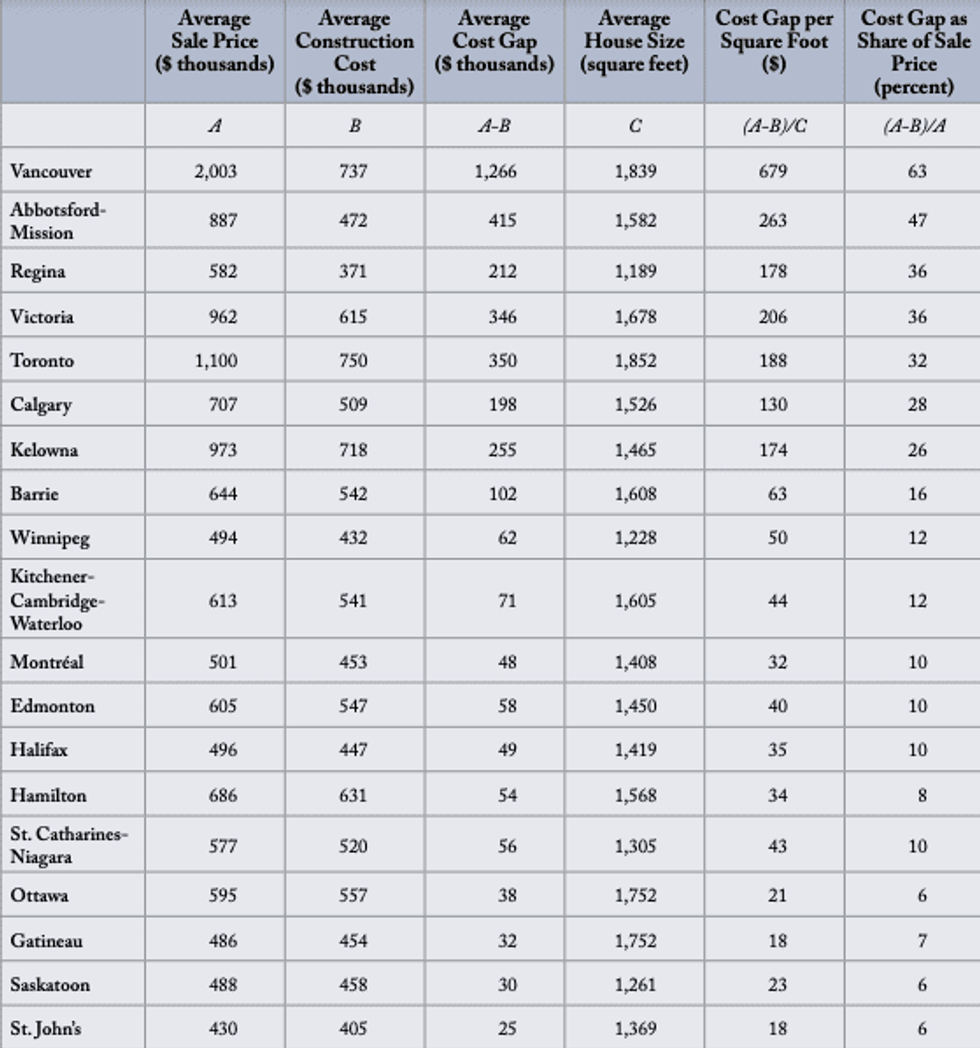New data is shining a spotlight on just how marked up new home prices are in Canada, blaming regulatory barriers for adding, in some cases, over a million dollars to selling prices.
This is according to a study by non-profit think tank C.D. Howe Institute, released earlier this month. The study period considers new home prices and relative construction costs between 2011 and 2021.
In Toronto’s case, the study reveals that government regulations and “other market dysfunctions” push the cost of building new up by $350,000, translating to a 32% gap between the cost of construction and market price.
In Vancouver, the markup is staggering, with a single-detached home in Vancouver costing homebuyers nearly $1.3M more than what it would cost to build in a market without barriers to supply. That translates to a gap of 63%.
It’s worth noting that substantial gaps were observed in smaller markets as well, including in Abbotsford-Mission (47%), Regina (36%), Victoria (36%), Calgary (28%), and Kelowna (26%).

Benjamin Dachis, Associate Vice President of Public Affairs for the C.D. Howe Institute, writes that these gaps -- which are worsening, as illustrated by results from the 2007 to 2016 study period -- are indicative of “the extent of the housing market dysfunction, which can be caused by factors such as upfront development charges, a lack of land for development for regulatory reasons, a lack of available transportation options to new land sites, or potential other factors that restrict competition among developers and builders.”
Later in the report, Dachis calls for “bold action” to bring market prices in line with the costs of construction.
More specifically, he recommends introducing provincially mandated minimum targets for municipal housing construction, and assignment enforcement of such targets to “neutral, adjudicative bodies with the power to impose fines on laggard cities.”
He also calls for a broad province- or city-wide target for increased density, which would allow for "a gradual increase in densities across the province.”
In addition, Dachis proposes reform with respect to upfront development charges on new housing, suggesting switching over to “utility-based user fees for services like water and wastewater once the infrastructure is in place.”





















